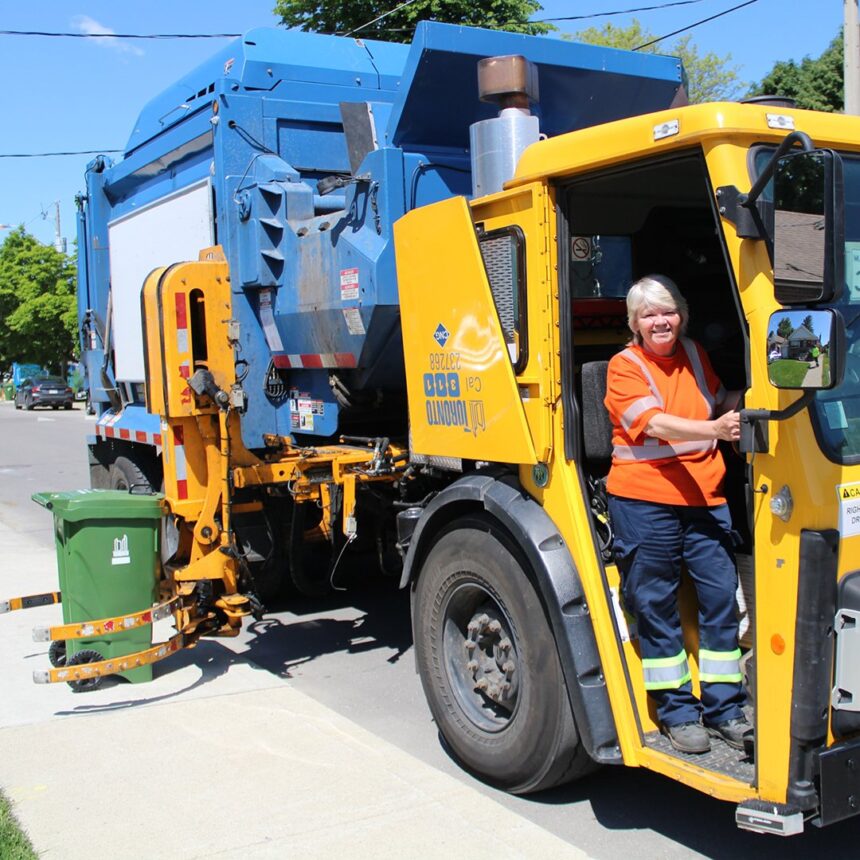Article – As Toronto’s last remaining landfill rapidly approaches capacity, city officials are considering a controversial solution that’s sparking intense debate across neighborhoods: waste incineration. The Green Lane Landfill, which has been handling Toronto’s garbage since 2007, is projected to reach its limit by 2034—much sooner than many residents realize.
“We’re facing a waste crisis that demands immediate attention,” explains Councillor Jennifer McKelvie, Chair of the Infrastructure and Environment Committee. “The days of simply trucking our waste elsewhere are coming to an end.”
The proposed waste-to-energy facility would burn approximately 400,000 tonnes of garbage annually, potentially extending the landfill’s lifespan while generating electricity. This approach has gained traction among some city planners who point to successful implementations in European cities like Copenhagen and Stockholm.
Walking through Leslieville yesterday, I noticed how few residents seemed aware of our impending waste predicament. Many Torontonians I spoke with expressed surprise when learning about the landfill timeline.
Local environmental groups have mobilized quickly against the incineration proposal. The Toronto Environmental Alliance (TEA) has raised concerns about air quality impacts and what they describe as a “backward step” in waste management.
“Incineration creates a perverse incentive to produce more waste rather than reduce it,” says Emily Alfred, TEA’s Waste Campaigner. “Once you build a billion-dollar facility, you need to feed it garbage for decades to recoup costs.”
According to city waste management data, Torontonians generate approximately 900,000 tonnes of residential waste annually. Despite ambitious diversion targets, our recycling rates have plateaued around 53% for the past five years.
The economics behind the proposal are compelling to some officials. The city currently spends nearly $95 million annually on waste disposal, with transportation costs increasing as trucks travel further distances. A local incineration facility could potentially reduce these expenses while generating revenue through electricity production.
During a community consultation in North York last week, residents expressed mixed reactions. “I’m concerned about emissions and what we’ll be breathing,” said local resident Anita Sharma. “But I also understand we can’t just wish away our garbage problem.”
Dr. Sarah Robertson, an environmental health researcher at the University of Toronto, suggests the debate requires nuance. “Modern incineration facilities have sophisticated pollution controls that dramatically reduce emissions compared to older technologies,” she notes. “However, we must consider the full lifecycle environmental impact, not just the operational phase.”
The Ministry of the Environment, Conservation and Parks would need to approve any incineration facility, requiring rigorous environmental assessments and public consultations.
Several councillors have called for accelerated waste reduction strategies instead of incineration. A recent report from the C.D. Howe Institute suggests Toronto could achieve up to 70% waste diversion with expanded organic collection and advanced materials recovery.
Mayor Olivia Chow has remained relatively neutral on the issue, emphasizing the need for thorough analysis. “We need to explore all options while prioritizing public health and environmental sustainability,” her office stated in a press release.
Having covered Toronto’s environmental initiatives for nearly a decade, I’ve observed how waste management rarely captures public attention until crisis points emerge. The current situation reflects a broader pattern of infrastructure planning challenges facing growing urban centers.
The city’s waste management division plans to present a comprehensive strategy to council by fall, with public consultations continuing throughout summer. Residents can provide feedback through the city’s website or at upcoming community meetings scheduled in each district.
As this debate unfolds, Torontonians face fundamental questions about responsibility and sustainability in an era of climate change and resource constraints. The decisions made in coming months will shape not just our waste management systems, but our environmental legacy for generations.
For more information on upcoming public consultations, visit the City of Toronto’s waste management portal or contact your local councillor’s office.







